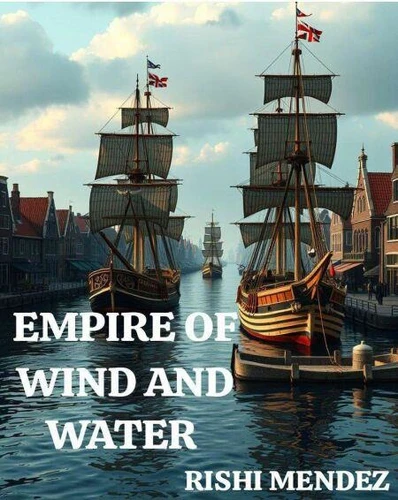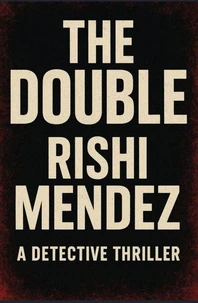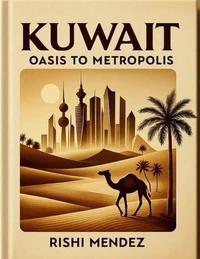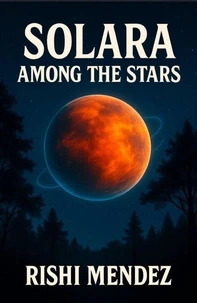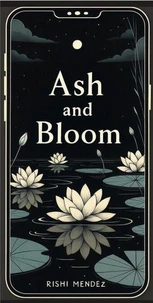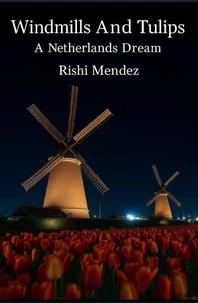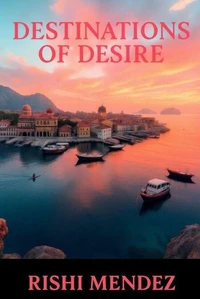Empire Of Wind And Water
Par :Formats :
Disponible dans votre compte client Decitre ou Furet du Nord dès validation de votre commande. Le format ePub est :
- Compatible avec une lecture sur My Vivlio (smartphone, tablette, ordinateur)
- Compatible avec une lecture sur liseuses Vivlio
- Pour les liseuses autres que Vivlio, vous devez utiliser le logiciel Adobe Digital Edition. Non compatible avec la lecture sur les liseuses Kindle, Remarkable et Sony
 , qui est-ce ?
, qui est-ce ?Notre partenaire de plateforme de lecture numérique où vous retrouverez l'ensemble de vos ebooks gratuitement
Pour en savoir plus sur nos ebooks, consultez notre aide en ligne ici
- FormatePub
- ISBN8231849703
- EAN9798231849703
- Date de parution28/08/2025
- Protection num.pas de protection
- Infos supplémentairesepub
- ÉditeurWalzone Press
Résumé
The Dutch Republic entered the late 17th century like a phoenix, wings outstretched, dazzling the world. Its ships stitched together the continents, its painters reshaped the very way people saw light, and its philosophers gave Europe new way of thinking. But brilliance invites envy, and the golden dawn did not last forever. The rivals came first from across the Channel. England, once humbled by Dutch naval might, rose with renewed ambition.
Three times the seas foamed with cannon fire in the Anglo-Dutch Wars. The battles were titanic, lines of ships stretching across the North Sea, sails snapping in the wind, smoke swallowing the horizon. For even as it battled England, the Dutch Republic faced threats closer to home. French armies swept across the land. Dutch engineers flooded the polders, turning fields into lakes that swallowed the invaders.
Out of disaster rose defiance, and the Republic endured. And then the war ended. Bells rang on November 11, 1918. Netherlands had held, in that gray winter of peace, anxious, altered, but definitely intact. The Netherlands decided not to be an accident of water. A nation that resolved never to be careless with its luck again. Even in decline, the Dutch Republic remained extraordinary, a small, waterlogged country that had dared to stand toe-to-toe with empires, to wield influence across oceans, and to shape the very ideas of liberty and commerce that would ripple into revolutions to come.
Three times the seas foamed with cannon fire in the Anglo-Dutch Wars. The battles were titanic, lines of ships stretching across the North Sea, sails snapping in the wind, smoke swallowing the horizon. For even as it battled England, the Dutch Republic faced threats closer to home. French armies swept across the land. Dutch engineers flooded the polders, turning fields into lakes that swallowed the invaders.
Out of disaster rose defiance, and the Republic endured. And then the war ended. Bells rang on November 11, 1918. Netherlands had held, in that gray winter of peace, anxious, altered, but definitely intact. The Netherlands decided not to be an accident of water. A nation that resolved never to be careless with its luck again. Even in decline, the Dutch Republic remained extraordinary, a small, waterlogged country that had dared to stand toe-to-toe with empires, to wield influence across oceans, and to shape the very ideas of liberty and commerce that would ripple into revolutions to come.
The Dutch Republic entered the late 17th century like a phoenix, wings outstretched, dazzling the world. Its ships stitched together the continents, its painters reshaped the very way people saw light, and its philosophers gave Europe new way of thinking. But brilliance invites envy, and the golden dawn did not last forever. The rivals came first from across the Channel. England, once humbled by Dutch naval might, rose with renewed ambition.
Three times the seas foamed with cannon fire in the Anglo-Dutch Wars. The battles were titanic, lines of ships stretching across the North Sea, sails snapping in the wind, smoke swallowing the horizon. For even as it battled England, the Dutch Republic faced threats closer to home. French armies swept across the land. Dutch engineers flooded the polders, turning fields into lakes that swallowed the invaders.
Out of disaster rose defiance, and the Republic endured. And then the war ended. Bells rang on November 11, 1918. Netherlands had held, in that gray winter of peace, anxious, altered, but definitely intact. The Netherlands decided not to be an accident of water. A nation that resolved never to be careless with its luck again. Even in decline, the Dutch Republic remained extraordinary, a small, waterlogged country that had dared to stand toe-to-toe with empires, to wield influence across oceans, and to shape the very ideas of liberty and commerce that would ripple into revolutions to come.
Three times the seas foamed with cannon fire in the Anglo-Dutch Wars. The battles were titanic, lines of ships stretching across the North Sea, sails snapping in the wind, smoke swallowing the horizon. For even as it battled England, the Dutch Republic faced threats closer to home. French armies swept across the land. Dutch engineers flooded the polders, turning fields into lakes that swallowed the invaders.
Out of disaster rose defiance, and the Republic endured. And then the war ended. Bells rang on November 11, 1918. Netherlands had held, in that gray winter of peace, anxious, altered, but definitely intact. The Netherlands decided not to be an accident of water. A nation that resolved never to be careless with its luck again. Even in decline, the Dutch Republic remained extraordinary, a small, waterlogged country that had dared to stand toe-to-toe with empires, to wield influence across oceans, and to shape the very ideas of liberty and commerce that would ripple into revolutions to come.

